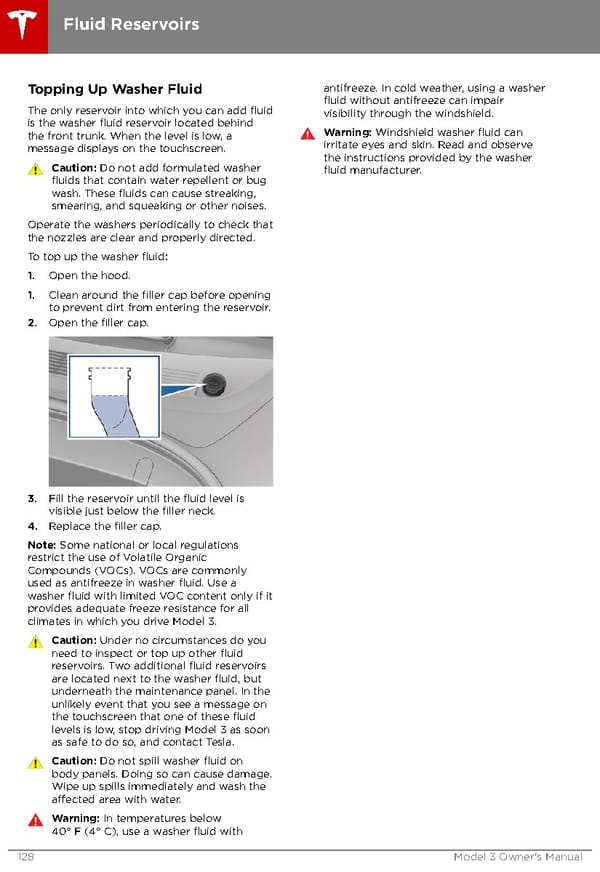Fluid Reservoirs Topping Up Washer Fluid antifreeze. In cold weather, using a washer fluid without antifreeze can impair The only reservoir into which you can add fluid visibility through the windshield. is the washer fluid reservoir located behind Warning: Windshield washer fluid can the front trunk. When the level is low, a irritate eyes and skin. Read and observe message displays on the touchscreen. the instructions provided by the washer Caution: Do not add formulated washer fluid manufacturer. fluids that contain water repellent or bug wash. These fluids can cause streaking, smearing, and squeaking or other noises. Operate the washers periodically to check that the nozzles are clear and properly directed. To top up the washer fluid: 1. Open the hood. 1. Clean around the filler cap before opening to prevent dirt from entering the reservoir. 2. Open the filler cap. 3. Fill the reservoir until the fluid level is visible just below the filler neck. 4. Replace the filler cap. Note: Some national or local regulations restrict the use of Volatile Organic Compounds (VOCs). VOCs are commonly used as antifreeze in washer fluid. Use a washer fluid with limited VOC content only if it provides adequate freeze resistance for all climates in which you drive Model 3. Caution: Under no circumstances do you need to inspect or top up other fluid reservoirs. Two additional fluid reservoirs are located next to the washer fluid, but underneath the maintenance panel. In the unlikely event that you see a message on the touchscreen that one of these fluid levels is low, stop driving Model 3 as soon as safe to do so, and contact Tesla. Caution: Do not spill washer fluid on body panels. Doing so can cause damage. Wipe up spills immediately and wash the affected area with water. Warning: In temperatures below 40° F (4° C), use a washer fluid with 128 Model 3 Owner's Manual
 Tesla Model 3 | Owner's Manual Page 128 Page 130
Tesla Model 3 | Owner's Manual Page 128 Page 130